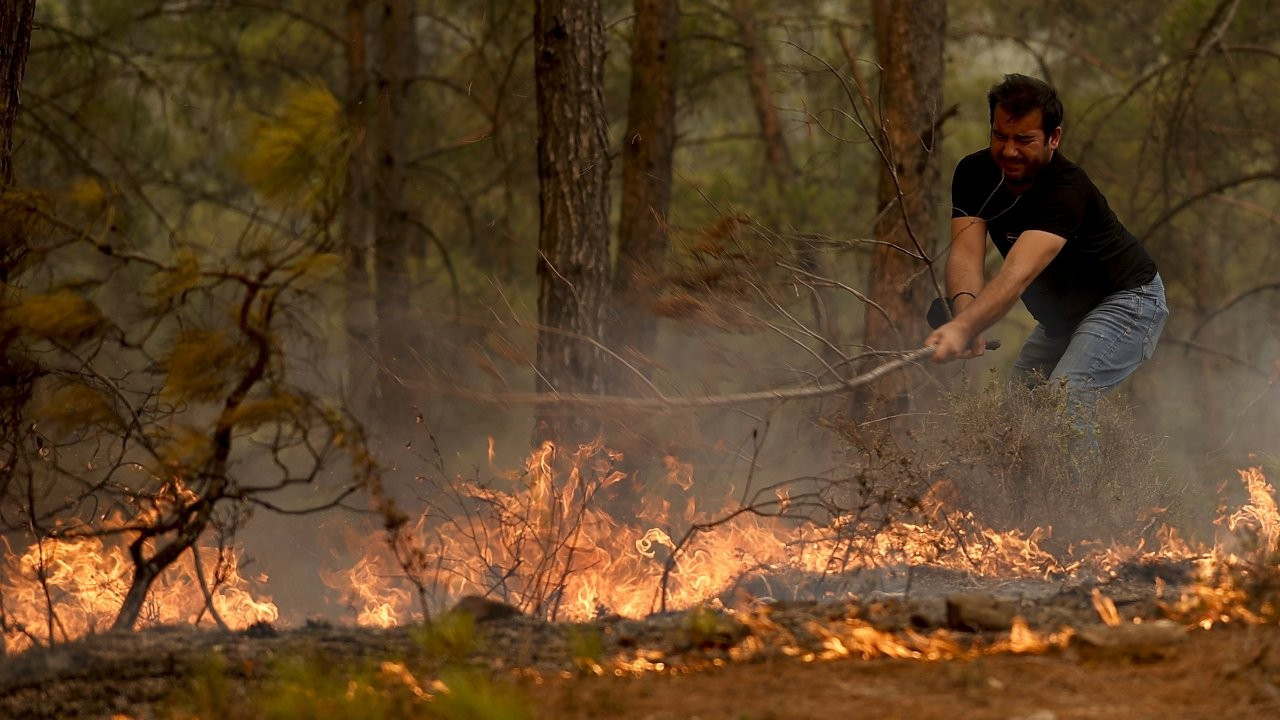Social media on fire in Turkey
The argument that asking for help makes Turkey look weak is absurd. When Australia had massive wildfires last year, the entire world sought to draw attention to the tragedy. What truly looks pitiful is needing help but refusing it out of some kind of misguided pride. Those who are sincerely afraid of the state looking weak should make sure the state is doing its job in the first place.
Turkey is in flames. Since last week, fires have been raging across Turkey’s south, particularly in the Mediterranean region. We have all been watching in despair as the fires burn forests to a crisp and tear their way through settlements. To date, eight people have been killed. While some of the forest fires have now been contained, many others continue to rage unabated, giving way to angered debates about what happened to Turkey’s firefighting aircraft and why the government’s response has been so sluggish.
Amid this catastrophe, angry and helpless people have turned to social media. Yet increasingly, social media only further contributes to our anger and helplessness. Though apps like Twitter might be new, this experience of helplessness isn’t. In American writer Muriel Rukeyser’s 1968 poem titled, simply, “Poem,” she immortalized this feeling:
I lived in the first century of world wars.
Most mornings I would be more or less insane,
The newspapers would arrive with their careless stories,
The news would pour out of various devices
Interrupted by attempts to sell products to the unseen.
I would call my friends on other devices;
They would be more or less mad for similar reasons.
Rukeyser wrote this poem during the Vietnam War, but she had her entire life shaped by war and violence. She was born on the eve of World War I, lived through the rise of fascism and World War II as a socialist and Jew, saw the Cold War begin, and was involved in anti-Vietnam War activism. As for the “various devices” she mentions, these were radios, televisions, and old school telephones rather than the digital devices we now love and hate. But the experience of waking up “more or less insane” every morning is a familiar one. I’m sure we all know what it’s like to doom-scroll from bed.
Our social media feeds are full of “careless stories” seemingly designed to make us lose our minds. When the fires in Turkey first began, both the ruling Justice and Development Party (AKP) and the main opposition Republican People's Party (CHP) sympathizers united on a narrative that the fires in Turkey’s south were started as a form of terrorism, perhaps ordered by Greece. Pro-government columnists and some politicians have even spread these kinds of conspiracy theories, though state organs are careful not to run too far with this ridiculous claim. Still, they don’t fully deny it either, for it’s always easier to blame an enemy than admit to one’s own haplessness.
It’s easy to understand the appeal of conspiracy theories. They provide a master narrative that can offer an easy explanation for everything that exists. We live in a challenging historical period where the entire world seems to be crumbling beneath us. Rather than face that uncertainty, people prefer the easy answers offered by these ridiculous explanations.
However, if you want a real conspiracy theory, look at global warming. You have a series of oil, gas, and power companies who lied to the public for decades about the effect of their extraction activities. Now the climate is quickly heading towards catastrophe, from floods and melting ice to wildfires. Do the nut jobs think the fires in Greece, Spain, Angola, and California were also set as an act of extremely well-coordinated global terrorists? Or when will they finally admit that the real conspiracy is the capitalists who are set to destroy life on the planet yet face no consequences for their actions?
Returning to Turkey and our crazy-making devices, there is also the example of dull-witted celebrities wading in way past their intellectual abilities. For example, geriatric rocker Kıraç recently took to Twitter to share a map of fires across Europe and Africa. Beneath it asked, “Isn’t there something weird about this? Can this be explained by global warming?” Yes, Kıraç, it can.
Or there’s the example of singer Nilüfer, a staple of Turkish pop since the 1970s, who used Twitter to critique social media users requesting international help with the fires that the Turkish authorities have been unable to handle: “To put Turkey in such a pitiful position in front of the world hurts my patriotic sentiments.” It was just one hop, skip, and a jump from Nilüfer’s statement to Presidential Communication Director Fahrettin Altun’s statement: "This so-called campaign that's organized from a single center abroad was launched over ideological purposes to make our state weak and to weaken the unity of our state and the nation.” Soon after, the hashtag #HelpTurkey began to be countered with #StrongTurkey. In this country, even the question of whether fires should be put out is polarized along political lines.
The argument that asking for help makes Turkey look weak is absurd. When Australia had massive wildfires last year, the entire world sought to draw attention to the tragedy. What truly looks pitiful is needing help but refusing it out of some kind of misguided pride. Fortunately, various EU countries have begun offering much-needed support from the air. Those who are sincerely afraid of the state looking weak should make sure the state is doing its job in the first place, rather than letting individual citizens fight the fires with bottles of water and handfuls of sand, as they have been doing all over the forests and villages of the Mediterranean.
And then as if things couldn’t get any more ridiculous, it turns out the well-intentioned #HelpTurkey campaign may have been subject to social media disinformation campaign after all. If we are to believe scholar Marc Owen Jones’ analysis of the Twitter accounts sharing the hashtag, many of them appear to be troll accounts that were opened only to tweet #HelpTurkey and then were deleted or changed their name. Many across social media platforms shared this post in good faith. However, it may be that the campaign was deliberately started to cause social polarization, thereby giving the #StrongTurkey troglodytes more fuel for their fire. Faced with so many conspiracy theorists, it’s hard not to start thinking like one yourself.
The effect of this toxic social media environment is that many are unable to directly express their anger. In 2020 alone, more than 10,000 people stood trial for “insulting the president.” The result creates a stilted, allusive way of speaking that only other denizens of this madhouse can understand. As one Twitter user wrote, “An entire generation has turned intodivan poets from trying to criticize [the government] without getting arrested.”
Perhaps it is poets who best know how to steer their way through this wreckage of language, whether poets like Rukeyser who could criticize injustice directly or the famously symbolic and obscure classical Ottoman poets who always found a way to hit their target, even if they had to be indirect about it.


 Turkey's media watchdog threatens broadcasters over wildfire coverageMedia
Turkey's media watchdog threatens broadcasters over wildfire coverageMedia